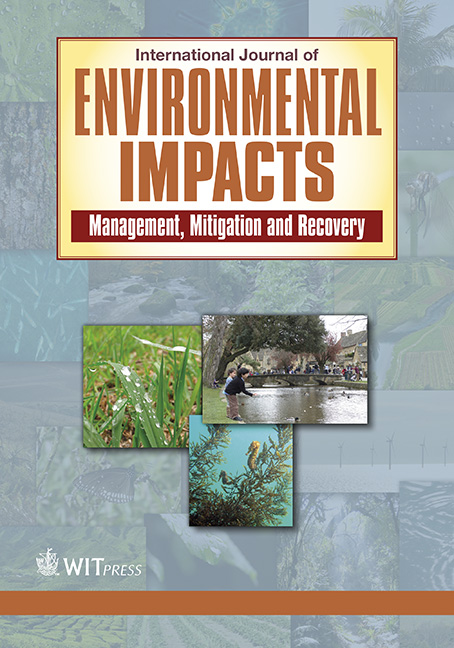MEASURES TO REDUCE AIR POLLUTION CAUSED BY FUGITIVE DUST EMISSIONS FROM HARBOUR ACTIVITIES
Price
Free (open access)
Volume
Volume 1 (2018), Issue 2
Pages
11
Page Range
115 - 126
Paper DOI
10.2495/EI-V1-N2-115-126
Copyright
WIT Press
Author(s)
SANDRA SORTE , MYRIAM LOPES, VERA RODRIGUES, JOANA LEITÃO, ALEXANDRA MONTEIRO, JOÃO GINJA, MIGUEL COUTINHO, CARLOS BORREGO
Abstract
Emissions from harbour-related activities have an important impact on air quality; therefore, improved knowledge about the coastal microclimate and consequent air pollution dispersion patterns is of utmost importance. In recent years, residents of the southeast urban community of the Port of Aveiro (Portugal) have identified high levels of dust in and around their residences, which has raised their concern regarding the potential effects of air pollution on public health. The citizens’ complaints were linked to fugitive dust emissions from petroleum coke (petcoke), which is usually unloaded or temporarily stored outdoors in the port prior to transportation to a nearby manufacturing plant. Following this, the air quality measurements taken in the area have shown high levels of PM10 concentrations, especially when the wind blew from north and northwest directions. Furthermore, a numerical and physical modelling study has been performed in order to assess the impacts of the transport and storage of petcoke on the local air quality. The modelling results pointed out to a set of potential mitigation measures, namely the construction upwind of different barriers from the petcoke pile. This article presents the characterization of the problem and the management strategies adopted. It also presents the results of modelling assessment to select the most potential effective barrier in order to minimize petcoke dust impact on the surrounding population.
Keywords
CFD model, mitigation measures, petcoke emissions, PM10 dispersion, mitigation measures, wind tunnel




